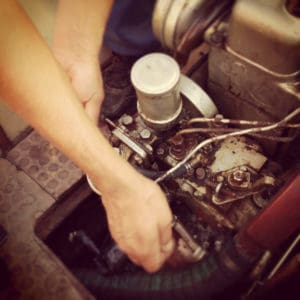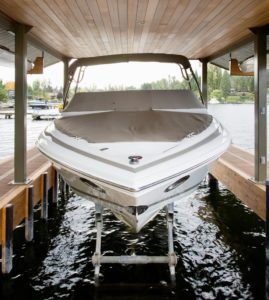Owning a boat comes with responsibility and hard work. Maintaining your vessel to keep it seaworthy doesn’t just mean fixing leaks and hosing down your boat’s engine. It also includes regular maintenance, such as cleaning the hull.
Many new boat owners don’t give much thought to keeping their hull clean. That part of the boat is underwater, and out of sight, so it’s easy to put it out of mind. But a dirty hull isn’t just bad news for your boat. It can be highly damaging to the environment, too.
Being a good boat owner means being a responsible one, and keeping your hull clean is part of that responsibility. Besides that, it can prolong the life of your boat, so you’ll get to enjoy it and your days on the water for longer.
Here’s what you should know about how often your boat’s hull needs cleaning and the most responsible ways to clean it.
Why Does the Hull of Your Boat Need Cleaning?
Like every other part of your boat, the hull will get dirty over time. An accumulation of plant and animal life on the bottom of your boat is known as biofouling, more commonly known as fouling. Fouling accumulates more quickly or slowly depending on the types of animal and plant life in the water around your boat.
Fouling isn’t just an eyesore. It can cause drag on your boat, reducing its fuel efficiency, which in turn leads to higher fuel consumption and an increase in greenhouse gas emissions.
Fouling is also bad for the ocean, because it allows the transfer of non-native invasive species, affecting the ecosystem. The damage to the ecosystem happens when organisms attach themselves to your boat and hitch a ride to locations where they aren’t native. They’re tiny organisms, but they can lead to big problems as they disrupt the food ecosystem in their new home.
How Often Should You Clean Your Hull?
In the waters around Sydney, fouling can become problematic pretty quickly. In fact, from the moment your hull touches the water, fouling begins. In an ideal world, you’d clean your hull weekly, but that’s simply not practical for most boat owners.
If you have your boat hauled out and stored ashore, it’s a good idea to clean the hull every time you bring it out of the water. By preventing severe biofouling, you only need to use the gentlest removal methods, which are kinder to your boat’s hull.
If your boat spends most of its time in the water, dive cleaning every 4-6 weeks can keep biofouling from becoming too severe. But, of course, even this time frame depends on the measures you’ve taken to prevent fouling.
If you’re using your boat for racing, aim for cleaning the hull before every race. Because fouling increases the boat’s drag, it can slow your vessel down and make it slower. The best way is to bring the vessel out of the water for a pressure clean and a new coat of anti-foul paint.
Antifouling Measures
Antifouling paint can help slow the development of fouling on your hull. You’ll have to put the boat in a slipway or tow it to a maintenance facility for this, but it’s an important step to take if you want to reduce the fouling buildup.
You must have your boat repainted with antifouling paint regularly, but the paint overall lasts longer if you don’t have to scrape off fouling constantly. By cleaning your hull before it becomes thick with tough fouling, you can preserve the antifouling paint and prolong its effectiveness.
Should You Clean Your Hull Yourself?
If you can give the time and attention to frequent hull cleanings, it’s OK just to do it yourself. A quick dive and scrub of your hull might be all you need to keep fouling under control. However, if you can’t get around to doing the job often, you’ll probably find that the task quickly becomes much more difficult as barnacles and other debris build up.
The Australian government has issued guidelines on antifouling and in-water cleaning. It’s better to clean the hull when your boat is on land. Not only does this limit the amount of debris scattered in the water (and the potential spread of non-native species), but it also prevents any of the antifouling paint from being scraped off into the water.
Many cleaning agents aren’t safe for sea life and can pollute the water when you clean your boat. Antifouling paints are also incredibly toxic and should be applied carefully. Painting your hull can be a big job, and so can cleaning it if there is quite a buildup of fouling. You may want to consider hiring someone to do the work for you.
Let Us Help With Your Antifouling Needs
Corleone Marina at the Balmain Marina has one of the last remaining slipways in Sydney Harbour. Our marina services include the best antifouling and hull and boat repairs. We also offer Do-It-Yourself slip way usage on the weekends. We know you just want to get out and enjoy your boat, so let us help with those routine sailing maintenance issues so you can focus on enjoying your vessel.
Contact us today to find out more about our excellent marina services in four stunning Sydney locations. We’ll take good care of you and your boat so you can relax and enjoy sailing worry-free.






